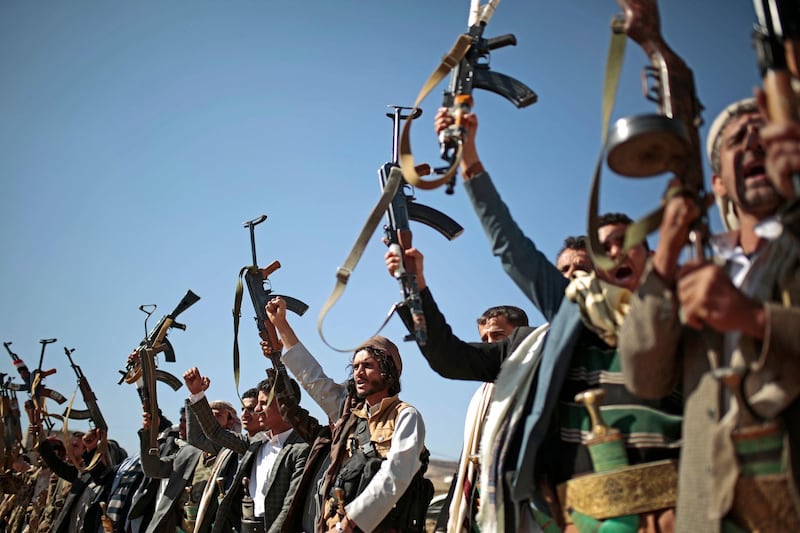Iran is financing Yemen's Houthi rebels through illegal shipments of fuel, UN experts said in a new report to the Security Council that also described how such funding is allowing the rebels to deploy increasingly sophisticated weaponry in the years-long civil war.
In the 85-page report to the Security Council seen on Friday by The Associated Press, the panel of experts monitoring UN sanctions against Yemen said "the Houthi leadership has continued to consolidate its hold over government and non-government institutions".
In its report last year, the experts said Iran violated a UN arms embargo by directly or indirectly providing missiles and drones to the Houthis.
The latest report said the experts identified a small number of companies inside and outside Yemen operating as front companies using false documentation "to conceal a donation of fuel" to an unnamed individual on the UN sanctions blacklist.
The panel said it found that the fuel was loaded from Iranian ports under false documentation to avoid required UN inspections, and "the revenue from the sale of this fuel was used to finance the Houthi war effort".
Iran has repeatedly rejected allegations that it is providing military support to the Houthis.
The conflict in Yemen began with the 2014 takeover of the capital Sanaa by the Iranian-backed Houthis, who toppled the country’s legitimate government. The Arab Coalition allied with President Abdrabu Mansur Hadi's internationally recognised government has been fighting the Houthis since 2015.
In 2018, the experts said "the threat to commercial shipping increased as Houthi forces developed and deployed sophisticated weapons such as anti-ship cruise missiles and waterborne improvised explosive devices against commercial vessels in the Red Sea".
In one case, they said, the Houthis targeted a vessel carrying wheat, which endangered the delivery of humanitarian aid and raised shipping costs to Yemen.
_______________
Read more:
UN experts urge stricter checks on arms smuggling into Yemen
[ UN expands Hodeidah ceasefire monitoring mission ]
[ Senior Houthi official defects and flees to Aden ]
_______________
The Houthis also attacked and damaged two Saudi oil tankers, each carrying 2 million barrels of crude oil, which "could have created an environmental disaster in the Red Sea," the experts said.
Since about last August, the panel said it noted the Houthis' deployment of extended range drones that would allow rebel forces to strike deep in Saudi Arabia and the UAE.
"Based on the evidence available, the panel observes that unlike in 2015 and 2016 when the Houthi forces used complete or partially assembled weapons systems which were supplied from abroad ... they are now increasingly relying on imports of high value components which are then integrated into locally assembled weapons systems," the experts said, adding that they are investigating whether the rebels were helped by foreign experts.
The expert report came as UN monitors try to strengthen a cease-fire in the port of Hodeidah, key to the delivery of 70 per cent of Yemen's imports and humanitarian aid, and arrange a withdrawal of rival forces from the area agreed to by the government and the Houthis on December 13.
While the agreement in Stockholm was limited, if fully implemented it could offer a potential breakthrough in Yemen's four-year civil war that has brought the Arab world's poorest country to the brink of starvation and created the world's worst humanitarian crisis.
But international bodies such as the World Food Programme have documented numerous Houthi violations, including the theft of aid deliveries, preventing them from reaching their intended destination.
The rebels have also continued shelling in Hodeidah and carried out a drone attack in southern Yemen, threatening to ruin the ceasefire and roll back the progress made in Sweden.
The experts also recommended that a Security Council committee on Yemen engage with Secretary-General Antonio Guterres's office, Yemen's government and donors to "enhance" the UN mission inspecting vessels heading to ports in Yemen for illegal arms so it can "identify networks using false documentation to evade inspection," appearing to reference alleged weapons transfers to the Houthis.





